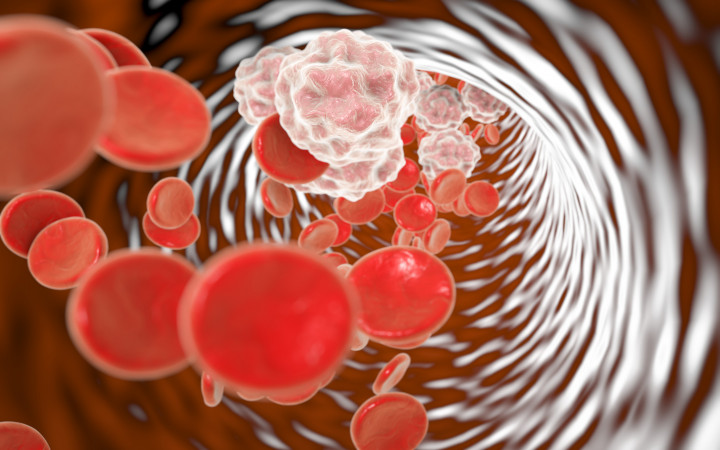Today’s Wonder of the Day was inspired by sravya. sravya Wonders, “How does blood pump into your brain?” Thanks for WONDERing with us, sravya!
Caution! Today’s Wonder of the Day has been known to attract sharks and vampires. What are we talking about? Blood, of course!
It’s the stuff that runs throughout our bodies. We need blood to live, so we want to keep it inside—where it belongs. When we get hurt and it starts coming through the skin, that’s when we have troubles and get squeamish!So, let’s work hard to keep our blood inside.
But, have you ever stopped to think about where it is inside you? Does it stay in one place? No! It moves around. A lot. Let’s take a closer look at blood and what it does inside our bodies.
Your body has quite a bit of blood in it. The bigger you get, the more blood you have. Most of us have around a gallon or more of blood. If you could buy a gallon of blood at the supermarket, it might be fun to look at the ingredients to see what’s in it.
When your body makes new blood, it follows a careful recipe that mixes together four different ingredients: red blood cells, white blood cells, platelets, and plasma. Each of these ingredients has special functions within the blood.
Red blood cells carry oxygen to the areas of your body that need it. White blood cells help to fight infections. Platelets will help you stop bleeding if you get a cut. Plasma carries a variety of things, such as nutrients, proteins, and hormones, throughout the body.
Your blood is a critical part of your circulatory system. Your heart is a powerful muscle that pumps blood throughout your body—from the top of your brain to the tips of your toes. The pathways it takes consist of different types of blood vessels, including arteries and veins.
Your arteries carry blood filled with oxygen away from the heart to the rest of your body. Because the heart is a strong muscle, this doesn’t take long. Did you know it takes less than a minute for blood to reach every part of your body?
After oxygen is delivered to the areas of your body that need it, your blood returns to your heart through your veins. Along the way, it picks up carbon dioxide and other things your body wants to get rid of. It’s kind of like taking out your body’s trash!
Thanks to your lungs, your blood is replenished with oxygen upon returning to the heart. It’s then pumped back out to the rest of the body. This goes on and on, over and over, for your entire life! This steady, regular movement of blood throughout your body is called circulation.
Although all blood functions in the same way, did you realize there are different types of blood? Depending on what types of proteins are found in your red blood cells, you will have one of eight blood types, named using the letters A, B, and O. The eight blood types are: A negative, A positive, B negative, B positive, O negative, O positive, AB negative, and AB positive.
No blood type is better or worse than another. They’re just different. Some are rarer than others. If you have a rare blood type, it can be more difficult to find a blood donor if you ever need one. That’s why people with rare blood types are often encouraged to become regular blood donors.
Standards: CCRA.L.3, CCRA.L.6, CCRA.R.1, CCRA.R.2, CCRA.R.4, CCRA.R.10, CCRA.SL.1, CCRA.SL.2




